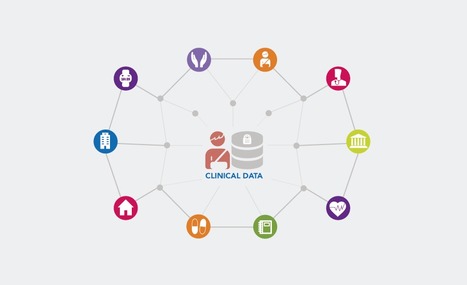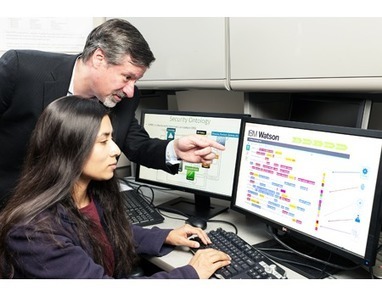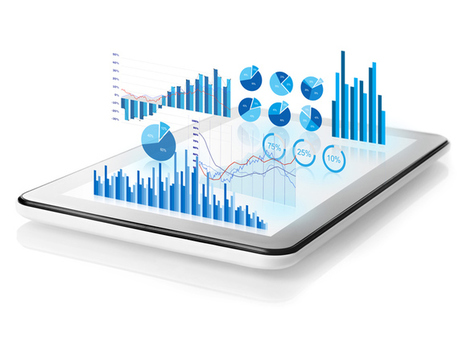The linked interview gives us all in Healthcare Technology a lot of food for thought. This below is a set of points extracted and massaged with my viewpoints
The biggest barrier to physicians having the most complete medical history for their patients at every point of patient care is the lack of interoperability among information systems.
State of Interoperability today:
The industry has made progress in developing open standards and application programming interfaces to facilitate data fluidity and sharing among multiple electronic health record systems and data repositories. As a result, commercial and open source interoperability services are coming online. While there is room for optimism, the industry is still grappling with data structure and management challenges
.
First, incomplete, disparate and disconnected data.
Most health and patient data is stored as unstructured medical format, and identifying information in the data is a manual and time-consuming process. There are significant variations in the way data is shared, read and understood across health systems, which can result in information being siloed and overlooked or misinterpreted
.
Further, most EHR systems do not follow patients on their care journey beyond the hospital or clinic walls. As a result, only a portion of healthcare data is available at any point of care, resulting in a fragmented view of a patient's health history.
Second, slow adoption and scaling of open interoperability standards.
Standards can streamline the structured data exchange needed to improve preventive and value-based care for people, predictions, diagnostics, post-marketing surveillance of medical products (for example drug, device), care quality, cost reduction and clinical research.
Industry guidelines and resources like the Fast Healthcare Interoperability Resources (FHIR) from Health Level Seven International (HL7) have helped to set a standard, though there is still more work to be done to support organizations to remove barriers toward adoption and make the electronic exchange of data more seamless, with the goal of providing a better provider and patient experience.
Third, risks due to siloed data:
When it comes to storing health information including clinical, genomic, device, financial, supply chain and claims, data security is the top priority. Storing patient data across different systems and platforms makes it difficult to deliver personalized care, draw data insights and streamline service.
This is a pivotal moment in time when healthcare can take what it's learned over the past year and fix the underlying problems.
Perhaps the most important learning is that achieving true healthcare interoperability requires understanding, evaluating and solving issues in the underlying syntactic and semantic characteristics of the data.
Syntactic interoperability requires a common structure so that data can be exchanged and interpreted between health IT systems,
while semantic interoperability requires a common language so that the meaning of data is transferred along with the data itself. This combination supports data fluidity.
The industry has made meaningful progress on this front.
Unlocking Benefits of Interoperability
As technology creates more data across healthcare organizations, applying technologies like artificial intelligence and machine learning will be essential to help take that data and create the shared structure and meaning necessary to achieve interoperability.
Shared structure and meaning will enable interoperability solutions that transform data input from various media types and forms: voice, image, scan, PDF, etc., into a common text format which can be shared with and leveraged by every entity in the value chain.
Instead of moving static, electronic documents or faxes like care summaries between healthcare providers, clinical AI-service APIs can enable EHR vendors and health systems to communicate in a standardized way with apps and other EHRs.
With access to all available information, advanced analytics and machine learning can then enhance medical and scientific insights tied to patient outcomes in an accurate, scalable, secure and timely manner.
read more at https://www.healthcareitnews.com/news/amazon-web-services-exec-talks-interoperability-lessons-past-year
Via nrip



 Your new post is loading...
Your new post is loading...













As we move toward value based care processes, artificial intelligence and machine learning, paired with data interoperability, will improve patient outcomes while driving operational efficiency to lower the overall cost of care.
By enabling data liquidity securely, and supporting healthcare providers with predictive machine learning models, clinicians will be able to seamlessly forecast clinical events like strokes, cancer or heart attacks and intervene early with personalized care and a superior patient experience.
Se le ofrece medicación sin receta, Farmacia España. – una de las farmacias más confiables de España, con más de 20 años de experiencia dispensando medicamentos de calidad
https://drogaspoderosas.com/producto/comprar-adipex-en-linea/
https://drogaspoderosas.com/producto/comprar-ambien-en-linea/
https://drogaspoderosas.com/producto/comprar-ativan/
https://drogaspoderosas.com/producto/comprar-blue-xanax/
https://drogaspoderosas.com/producto/comprar-botox-en-linea/
https://drogaspoderosas.com/producto/comprar-codeina/
https://drogaspoderosas.com/producto/comprar-demerol-50mg-ml/
https://drogaspoderosas.com/producto/comprar-diazepam-en-linea/
https://drogaspoderosas.com/producto/comprar-dilaudid-8mg/
https://drogaspoderosas.com/producto/comprar-efedrina-hcl-30mg/
https://drogaspoderosas.com/producto/comprar-endocet-en-linea/
https://drogaspoderosas.com/producto/comprar-green-xanax/
https://drogaspoderosas.com/producto/comprar-hidrocodona-en-linea/
https://drogaspoderosas.com/producto/comprar-metadona-10mg/
https://drogaspoderosas.com/producto/comprar-morfina-15mg/
https://drogaspoderosas.com/producto/comprar-opana-en-linea/
https://drogaspoderosas.com/producto/comprar-stilnox-en-linea/
https://drogaspoderosas.com/producto/comprar-oxicodona-en-linea/
https://drogaspoderosas.com/producto/comprar-oxycontin-en-linea/
https://drogaspoderosas.com/producto/comprar-percocet-10mg-325mg/
https://drogaspoderosas.com/producto/comprar-rohipnol-2mg/
https://drogaspoderosas.com/producto/comprar-stilnox-en-linea/
https://drogaspoderosas.com/producto/comprar-suboxone-8mg/
https://drogaspoderosas.com/producto/comprar-subutex-8mg/
https://drogaspoderosas.com/producto/comprar-tableta-demerol/
https://drogaspoderosas.com/producto/comprar-vicodin-en-linea/
https://drogaspoderosas.com/producto/comprar-vyvanse-en-linea/
https://drogaspoderosas.com/producto/comprar-xanax-2mg/
https://drogaspoderosas.com/producto/compre-ritalin-en-linea/
https://drogaspoderosas.com/producto/parches-de-fentanilo/
https://macchinadagolf.com/Prodotto/acquista-2000-club-car-ds-online/
https://macchinadagolf.com/Prodotto/2004-club-car-precedente/
https://macchinadagolf.com/Prodotto/2010-star-2-passeggero/
https://macchinadagolf.com/Prodotto/2012-yamaha-the-drive-ptv-gas/
https://macchinadagolf.com/Prodotto/2016-clubcar-precedent-alpha-48-volt/
https://macchinadagolf.com/Prodotto/2017-ezgo-express-s4-elite/
https://macchinadagolf.com/Prodotto/2017-ezgo-txt-elite/
https://macchinadagolf.com/Prodotto/2018-clubcar-tempo-48-volt/
https://macchinadagolf.com/Prodotto/2018-cushman-hauler-800-x-gas/
https://macchinadagolf.com/Prodotto/2018-cushman-hauler-800x/
https://macchinadagolf.com/Prodotto/2018-ezgo-express-s4-gas/
https://macchinadagolf.com/Prodotto/2019-cushman-hauler-800x-gas-efi/
https://macchinadagolf.com/Prodotto/2019-ezgo-express-s4-48-volt/
https://macchinadagolf.com/Prodotto/2021-ezgo-rxv-48-volt/
https://macchinadagolf.com/Prodotto/2022-ezgo-express-s4-elite/
https://macchinadagolf.com/Prodotto/2022-ezgo-rxv-gas-ex1/
https://macchinadagolf.com/Prodotto/2022-navitas-x4-48-volt/
https://macchinadagolf.com/Prodotto/acquista-2005-club-car-elettrica/
https://macchinadagolf.com/Prodotto/acquista-ezgo-txt-elite-2017/
https://macchinadagolf.com/Prodotto/acquistare-2016-e-z-go-tempesta-ristrutturazione/
https://macchinadagolf.com/Prodotto/acquistare-ingersoll-rand-golf-carts/
https://macchinadagolf.com/Prodotto/carrelli-epic-golf-a-6-posti/
https://macchinadagolf.com/Prodotto/epic-carts-4-seater-golf/
https://macchinadagolf.com/Prodotto/ezgo-freedom-rxv-2016/